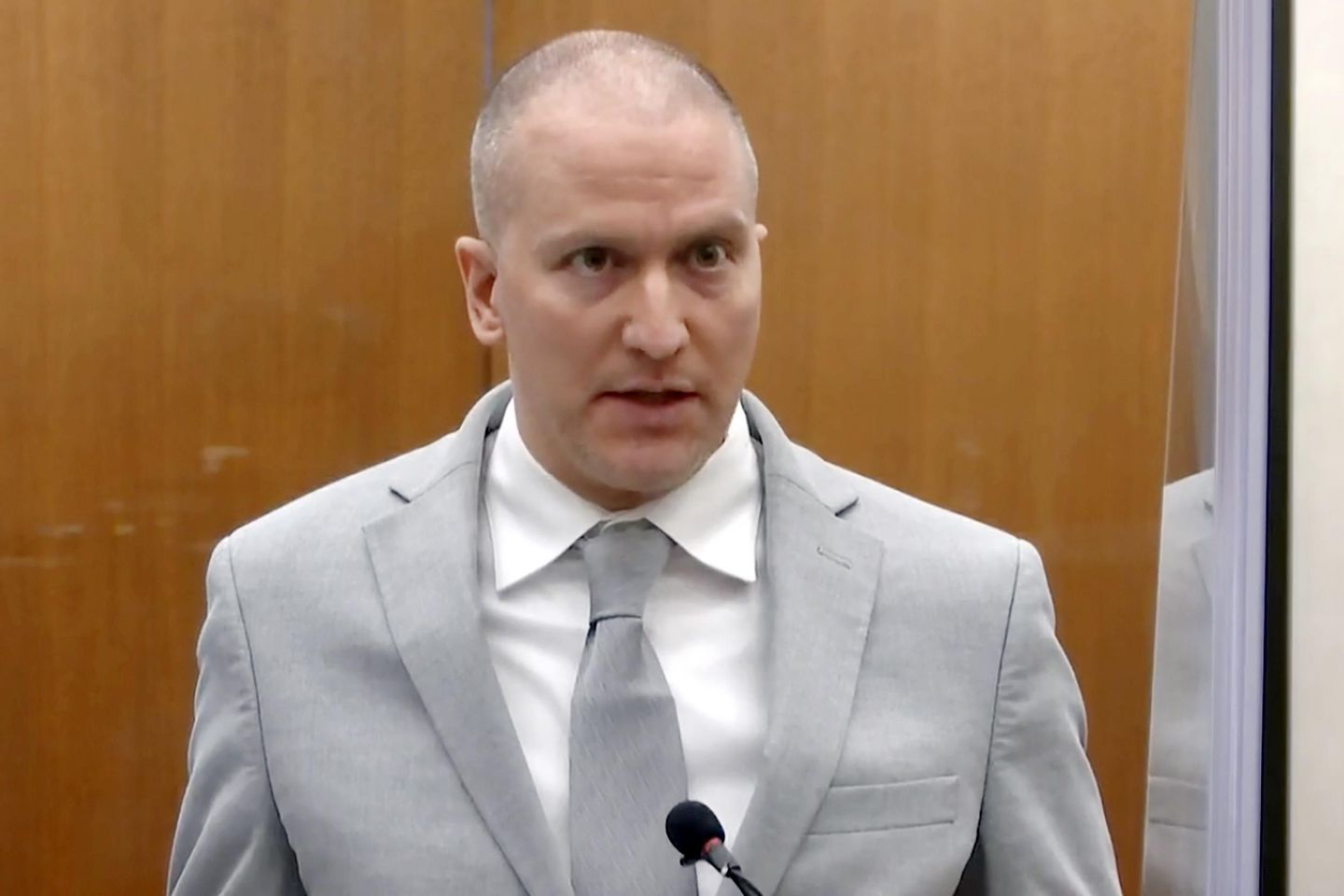
Minnesota leaders appeared to stir the pot about President Trump possibly pardoning Derek Chauvin, despite the White House giving no signs it will grant clemency to the former police officer convicted of murdering George Floyd and igniting a nationwide wave of protests against police brutality in 2020.
Gov. Tim Walz, a Democrat, suggested during a press briefing earlier this week that Mr. Trump could pardon Chauvin, whose 21-year federal sentence for civil rights violations and tax evasion is eligible for presidential clemency.
Chauvin, who is White, was also sentenced to 22-and-a-half years on state murder charges for killing Floyd, who was Black. He is serving his federal and state sentences concurrently.
If Mr. Trump were to pardon Chauvin, the 49-year-old inmate would be transferred from a low-security federal prison in West Texas to a Minnesota state prison to complete the rest of his term.
“No indication whether they’re going to do it or not, but I think it behooves us to be prepared for it,” Mr. Walz said Monday. “With this presidency, it seems like that might be something they would do.”
Multiple sources told KSTP-TV in St. Paul that Minneapolis Mayor Jacob Frey, the Minnesota National Guard and Hennepin County Sheriff have all been briefed on how to prepare for possible civil unrest if the president did go through with the pardon.
But Mr. Trump has not shown any support for granting clemency to the ex-cop.
In March, Mr. Trump responded to a press question about him potentially pardoning Chauvin. He said then that “I have not heard about that.”
The Washington Times reached out to White House for comment.
Pardoning Chauvin has become a cause celebre among conservative politicians and media stars who have challenged the accepted wisdom that the former cop’s lengthy knee restraint killed Floyd.
They argue instead that the fentanyl in Floyd’s system and a prior heart condition is what caused him to die in May 2020.
“I strongly support Derek Chauvin being pardoned and released from prison,” Rep. Marjorie Taylor Greene, Georgia Republican, wrote Wednesday on X in response to the KSTP report. “George Floyd died of a drug overdose.”
The more than 9-minute restraint, which was captured on video and saw Floyd crying out in a panic, motivated millions of people to take to the streets in protest across the country.
Demonstrators’ outrage gave way to violence and riots, with a Minneapolis police building being burned down days after Floyd’s death. Other cities, such as Seattle, saw rioters establish lawless “autonomous zones” while Portland, Oregon, saw daily protests for five months straight.
At least 25 people were killed in protests and riots linked to Floyd’s death by the end of summer 2020, and more than $1 billion in damage was incurred during the chaos.












